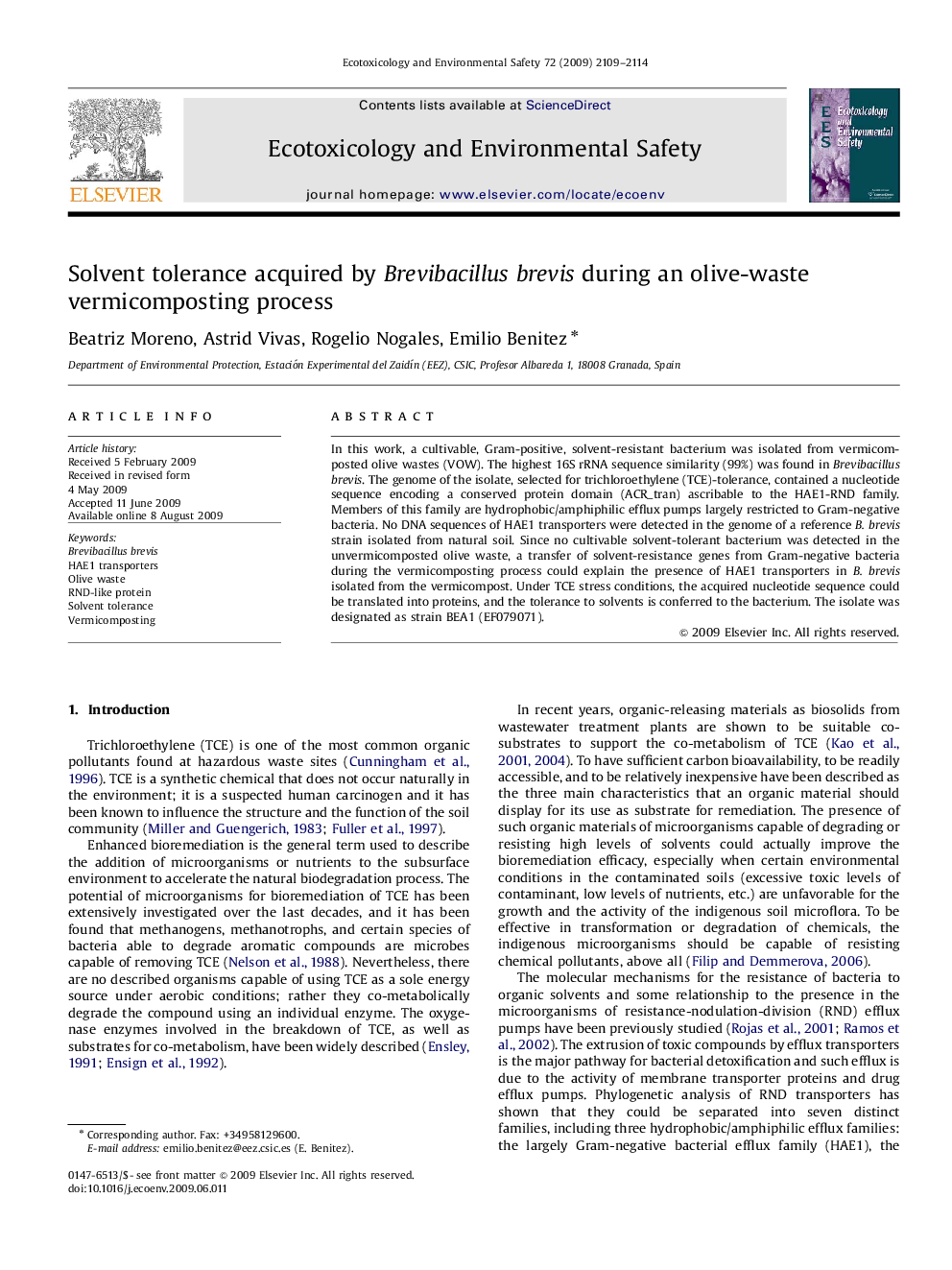| Article ID | Journal | Published Year | Pages | File Type |
|---|---|---|---|---|
| 4421513 | Ecotoxicology and Environmental Safety | 2009 | 6 Pages |
In this work, a cultivable, Gram-positive, solvent-resistant bacterium was isolated from vermicomposted olive wastes (VOW). The highest 16S rRNA sequence similarity (99%) was found in Brevibacillus brevis. The genome of the isolate, selected for trichloroethylene (TCE)-tolerance, contained a nucleotide sequence encoding a conserved protein domain (ACR_tran) ascribable to the HAE1-RND family. Members of this family are hydrophobic/amphiphilic efflux pumps largely restricted to Gram-negative bacteria. No DNA sequences of HAE1 transporters were detected in the genome of a reference B. brevis strain isolated from natural soil. Since no cultivable solvent-tolerant bacterium was detected in the unvermicomposted olive waste, a transfer of solvent-resistance genes from Gram-negative bacteria during the vermicomposting process could explain the presence of HAE1 transporters in B. brevis isolated from the vermicompost. Under TCE stress conditions, the acquired nucleotide sequence could be translated into proteins, and the tolerance to solvents is conferred to the bacterium. The isolate was designated as strain BEA1 (EF079071).
